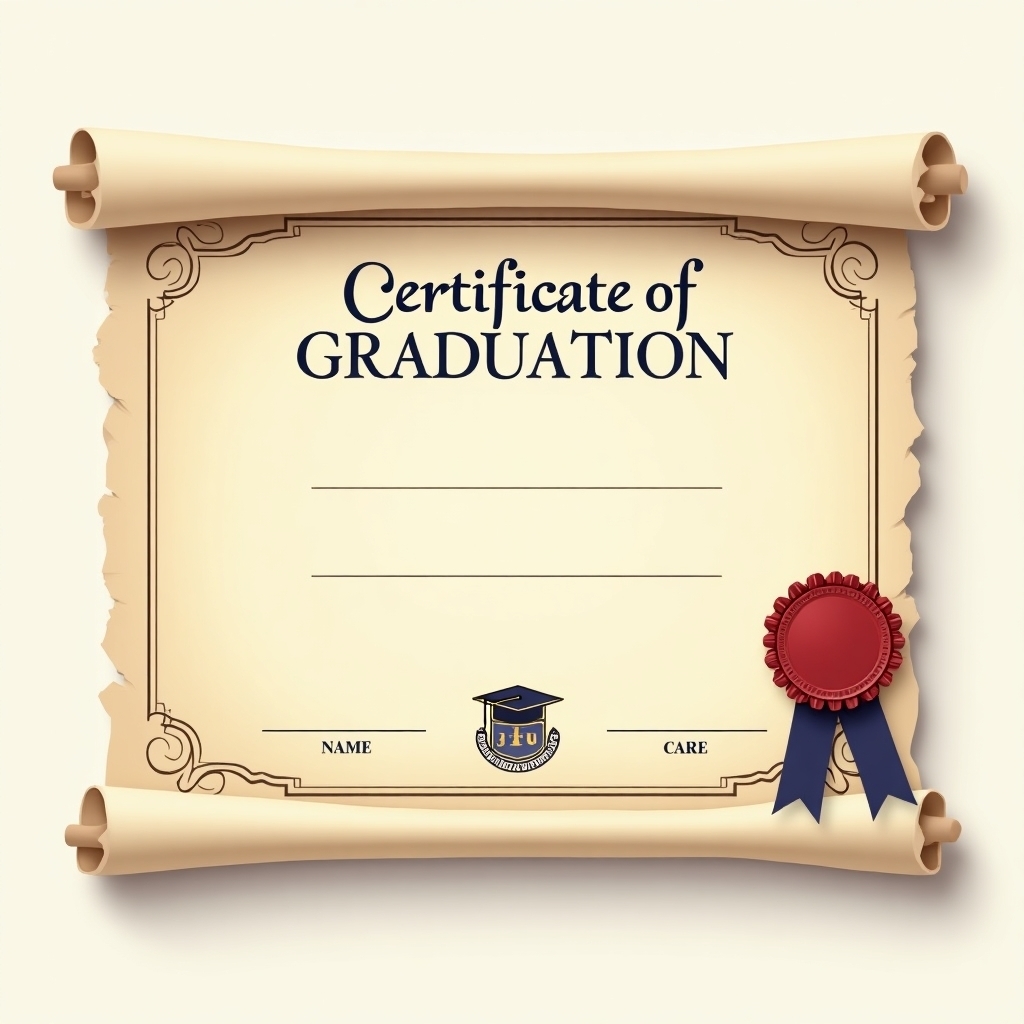From Graduation to Frustration: Why Degrees Alone Don’t Guarantee Success?

You finally got the degree you worked so hard for — the one you stayed up late studying for, sacrificed sleep and fun for getting it, and believed that it would be your key to success. You were told it would open doors to a great career and for a good income.
Many graduates feel trapped by societal pressure to pursue certain degrees, like medicine or engineering, even if it’s not their passion. If you want to learn why it’s important to choose your own career path, read our article Stop Forcing Kids to Be Doctors or Engineers — 7 Reasons to Let Them Choose Their Own Path.
But now, you’re jobless after degree — confused and frustrated.
You’re asking yourself: “Why isn’t this ‘key to success’ unlocking any real opportunities for me?”
If that’s how you feel right now, let me tell you this — you are not alone.
Every year, thousands of fresh graduates find themselves jobless after degree.
The Truth About Degrees:

A degree used to be a golden ticket. But in today’s world, a degree alone no longer guarantees a job or success. Employers are no longer impressed by just by a piece of paper. What they want are skills — natural, practical, job-ready skills. Your career needs skills, not just qualifications.
🎯 Want to boost your career? Start by learning English fast and open new opportunities! 🚀
Why So Many Graduates Are Jobless?

For years, people followed this simple idea:
Get a degree → Get a job → Build a career.
But here’s the problem: this idea doesn’t always work anymore.
There are thousands of degree holders who are jobless after degree.
Why?
Because today’s employers don’t care about your qualifications. They care less about what you memorized from books and more about what you can actually do in the real world. They want to know:
• Can you solve the problems?
• Can you communicate clearly?
• Can you work well with others?
• Can you use modern tools and technologies?

A degree proves you went to school. It shows you gained some knowledge.
But it doesn’t prove you can handle real job challenges. Your career needs skills. Without them, you will be staying jobless after degree.
Why Skills Matter More Than Degrees Today?

Maybe you’re wondering:
“Why do skills matter more than degrees in today’s world?”
Skills are abilities you can apply in real-life situations. You develop them through practice and experience. These include:
• Problem Solving.
• Creativity and new ideas.
• Communication.
• Technical Knowledge.
• Teamwork.
This Forbes article highlights that 90% of companies report fewer hiring mistakes and 94% find that skills-based hires outperform those hired based on degrees. It underscores the growing trend of employers prioritizing practical skills over formal educational credentials.
Natural Skills Matter Too:

Some skills come naturally, such as:
• Quick thinking.
• Creativity.
• Learning new things fast.
• Finding new solutions.
These are as valuable as the skills you learned through practice. Your career needs skills from both sides: natural talents and learned through experience. And guess what? Employers value both.
Not Saying “Don’t Get a Degree” — It’s About Balance

Let me be clear — I am not telling you that you don’t have to get a degree or you shouldn’t have to follow your passion. If getting a degree in your field of education or passion is important, then go for it. Your degree is valuable. It teaches discipline and gives you foundational knowledge.
But education is just step one. Your career needs skills beyond what textbooks teach. That’s why, even after completing graduation, many people stay jobless — they believed that the degree would be sufficient for them to build their career.
Think of It Like This:
Degree = Driver’s License
Skills = Knowing How to Drive
Having a driver’s license doesn’t make you a great driver. Same way, having a degree alone doesn’t automatically prepare you for a job. Similarly, just like kids spending too much time on video games need balance with outdoor play, your career also needs the right skills to truly grow — read how video games impact children’s screen addiction and the importance of outdoor play.
Real-Life Proof: Skills Matter More Than Degrees:
Some of the most successful people proved this point.
Thomas Edison didn’t go to school much, but he still became a famous inventor.

He created the electric light bulb and started a big company called General Electric. His success came from skills like creativity, problem-solving, and by never giving up.
Steve Jobs dropped out of college but led Apple to become one of the world’s biggest companies. His success wasn’t about a degree — it was about his skills in design, innovation, leadership, and seeing the future of products.

Their stories show why your career needs skills beyond qualifications. Being jobless after degree isn’t the end — it’s a sign to shift your focus.
Learn how modern distractions like smartphone addiction can quietly hold back your career growth — read our full guide on its hidden effects.
What Employers Really Want?
If you ask about the hiring managers today what they truly look for is:
• Problem-Solving Ability: Can you think critically and fix real issues?
• Communication Skills: Can you express ideas clearly, in writing and in speech?
• Technical Skills: Do you know the specific tools required for the job?
• Adaptability: Can you learn new things quickly and can you handle changes?
If you don’t have these skills, your chances of staying jobless after degree can be much higher.
Why Skills Are More Important for Your Career Than Ever?
The world is changing fast. New jobs are growing in fields like computers and robotics. At the same time, some old jobs are disappearing because technology is changing the work, that we used to do before.
Because of these changes, just having a degree is not enough to get a job today. Many people who finish their degree still stay jobless because they don’t have the right skills that employers need now.
Your career needs skills that grow and change in the today’s job market. You must keep learning new things and practicing skills that are useful today. If you only rely on your degree and don’t learn new skills, it can be much harder to find a job and to have a good career.
That’s why it is very important to focus on building your skills along with getting your degree. Skills help you get hired and keep your job, so you don’t stay jobless after degree.
How to Stop Being Jobless After Degree?
Feeling stuck and jobless after degree doesn’t have to be permanent. You can change your path. Here’s how:
1️⃣ Identify Your Natural Strengths
Make a list:
• Are you a good listener?
• Are you good at teaching others?
• Are you naturally organized or creative?
These natural skills can be improved and become strong in work abilities. Remember, your career needs skills that you already have!
2️⃣ Learn Useful Skills Online

Platforms like Udemy, Coursera, LinkedIn Learning, and even YouTube offer free or low-cost courses in:
• Coding.
• Data Analysis.
• Graphic Design.
• Content Writing.
Building skills aligned with your interests can transform your career prospects. Want to know how to turn your passion into a profession? Check out our guide: Turn Your Hobby Into a Career: 6 Steps to Turn Passion Into Profession.
Spend a few hours in a week to learn. This can help you move from jobless after degree to career-ready in just a few months.
3️⃣ Build a Portfolio
Don’t just say you have skills — show them.

Employers want to see proof. Make things like:
• Sample projects, like a small app or design.
• Online examples, like a blog or website.
• Personal projects, like creating something on your own.
• Helping friends or family with a project.
Even small projects help a lot when you want to stop being jobless after degree.
4️⃣ Keep Learning to Grow Your Career
Jobs and industries keep changing all the time. New tools and new ideas appear. That’s why your career needs skills that grow with new technology and with new trends. Always stay curious and keep learning new skills.
A Simple Truth: A Degree Is Not Everything:
If you are still jobless after degree, here’s the truth:
A degree alone is just a piece of paper. Without real skills, it doesn’t help much.

Employers look for people who can actually do the work, not just those with a piece of paper. That’s why your career needs skills that show your value in the real world.
Final Thoughts: Your Degree Is a Starting Point — Your Career Needs Skills
Think of your degree as a foundation, not a final destination. It’s valuable, but it’s not enough in today’s world.
If you are jobless after degree, don’t give up or feel scared. Start learning useful skills. Show employers you can work, learn, and improve.
Because Here’s The Simple Truth:
Degrees Open Doors, But Skills To Keep Them Open.
Frequently Asked Questions (FAQs)
1. Why am I jobless even after getting a degree?
A degree alone no longer guarantees a job. Today’s employers are looking for real-world, practical skills like problem-solving, communication, and adaptability — not just academic qualifications.
2. Do employers still value degrees?
Yes, but only as a foundation. Employers now prioritize skills that help solve problems and drive results. A degree helps, but your career needs skills beyond the classroom.
3. What kind of skills do I need to get hired?
Skills like communication, creativity, critical thinking, teamwork, and technical know-how (like digital tools or data analysis) are in high demand. These skills make you job-ready.
4. Can I still get a job without a degree?
Yes. Many successful professionals have built strong careers without formal degrees by learning and proving their skills through portfolios, freelancing, or certifications.
5. How can I improve my skills after graduation?
Start by identifying your interests. Then take online courses (Udemy, Coursera, YouTube), practice regularly, work on personal projects, and build a portfolio to showcase your abilities.
6. Should I focus more on learning than just getting a degree?
Absolutely. Your degree is the starting point. Continuous learning and skill-building are what help you stand out and succeed in today’s job market.
7. What are natural skills and do they matter in careers?
Yes! Natural skills like creativity, quick learning, and problem-solving matter a lot. When combined with learned skills, they make you more effective and valuable to employers.
8. I feel hopeless being jobless after my degree. What should I do?
You’re not alone. Many graduates feel the same. Start small — learn one new skill, take one course, build one project. Every step moves you closer to career success.
✨ Best Wishes,
SAAH (Hiba) — Student & 🖋️ Content Writer
🎯🚀 Jobless After Degree

